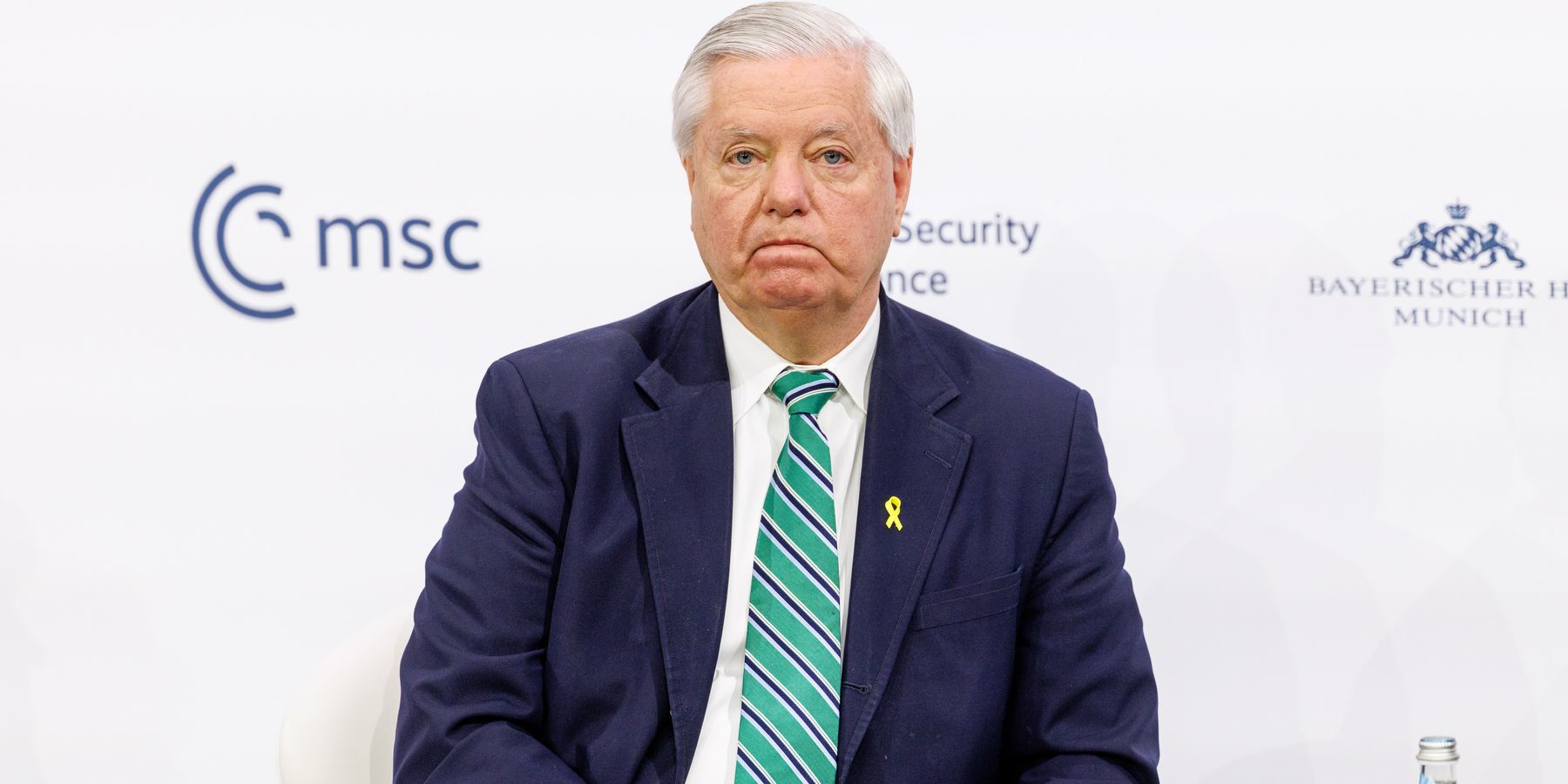Proponents of a maximalist battlefield program in Ukraine on both sides of the Atlantic are now somewhere between bargaining and depression in the five stages of grief. Concurrent statements by President Trump, Secretary of Defense Hegseth, and Vice President Vance have upended the Biden-era Ukraine consensus in the most fundamental ways.
The White House has signaled its readiness to take Ukraine’s NATO membership off the table, thereby renouncing the “open door” membership policy canonized by former Secretary of State Antony Blinken and others in the previous administration as a bedrock ordering principle of the transatlantic relationship.
Trump dismissed as ludicrous the idea, repeated at the highest levels by Biden administration officials, that Russia is planning to attack NATO countries. Whereas the previous administration massaged its European counterparts with soothing promises of America’s perpetual and growing defense commitment to the continent, Hegseth plainly warned Europeans last week not to assume that the U.S. military presence will be “forever.”
Indeed, top officials are already suggesting that some degree of U.S. retrenchment from Europe to the Asia-Pacific is imminent. Where Biden spoke in almost mantric terms about transatlantic unity, especially on Russia-Ukraine, Gen. Keith Kellogg bluntly explained that negotiations to resolve the war will proceed without Europe.
It’s perhaps unsurprising that these policy shifts have left scores of European leaders in an incredulous state, with some openly refusing to accept the new realities. They are joined by neoconservative elements in the U.S. that, too, insist on the illusory aim of prosecuting the war until Moscow’s capitulation even as Russia further expands its seemingly irreversible battlefield edge over Ukraine.
These holdouts at least cannot be accused of suffering from a want of the sort of vivid imagination required to concoct, on an almost daily basis, new “proposals” to secure Ukrainian victory. The latest such scheme, apparently proffered to the Trump administration by Sen. Lindsey Graham, recognizes that Ukraine cannot join NATO now, but insists on some kind of provision guaranteeing Ukraine’s automatic accession to NATO if Russia renews hostilities after a peace deal is signed.
“I've got an idea, comes from The Art of the Deal. If we can't agree they should be in NATO like right now, can we agree that if there's ever another invasion, the moment they invade, they go into NATO? Let Putin put him in NATO if he wants to," Graham said at the Munich Security Conference. Graham’s proposal has unsurprisingly found a sympathetic ear among the staunchest European supporters of the Biden-era Ukraine consensus.
This idea is, of course, dead on arrival. Offering Ukraine a tripwire path into NATO means it cannot meaningfully declare and observe military neutrality, which is a core Russian negotiating position and one of the major reasons why Russia launched the invasion in the first place.
Offering Ukraine what is in essence deferred NATO membership incentivizes Russia not to end the war, but to prosecute it even more vigorously and for as long as it takes to decisively defeat Ukraine. It also creates a distorted incentive structure for future Ukrainian leaders who may infer that they stand to benefit from an escalation of tensions with Russia if it leads to their automatic invitation into NATO and right to invoke the alliance’s Article 5 collective defense provision.
If this assurance is to be treated as credible, then, far from ensuring a durable peace in Europe, it sets the stage for a much more destructive war between Russia and NATO in the not so distant future.
But it is not, in fact, credible, because NATO countries have continually demonstrated over the past three years that they are unwilling to fight Russia over Ukraine. If that was the case yesterday and remains so today, why would it be any different tomorrow?
This plan is therefore not only unworkable on its face, but the inherent ambiguity it conveys to Moscow and Kyiv alike is itself a source of danger. The credibility of NATO’s collective defense deterrent has survived the war intact precisely because of a clear understanding among all relevant parties that Ukraine is not a member of the alliance, and that a direct Russian attack on NATO would prompt a completely different response from what the West has been doing to aid Ukraine since 2022.
To muddy the waters with a plan to put Ukraine in NATO purgatory is to recklessly gamble with the alliance’s deterrent credibility for no discernible strategic benefit that anyone can put their finger on. It neither advances the cause of peace in Europe, nor strengthens the West, nor helps Ukraine rebuild and flourish in a postwar context.
The West has at its disposal a robust, versatile toolset — extensively discussed in a forthcoming QI brief written by George Beebe, Anatol Lieven, and myself — for providing security guarantees to Ukraine and ensuring continued Russian compliance with the terms laid out in a potential peace settlement. But as the Trump administration rightly established, dangling NATO membership in front of Ukraine is not and cannot be one of those tools.
It is often said, at least sometimes unfairly, that generals fight the last war. Yet it is plainly clear that too many politicians on both sides of the Atlantic insist on appealing to the hollow “as long as it takes” doctrine of the last US administration, reliving tired maxims and speeches with no resemblance to the war’s present state, and parleying lightly repackaged versions of the same failed ideas. It is long past time for leaders who have not yet done so to repair to current military and political realities and adjust their approach to the ongoing Ukraine peace process accordingly.
















